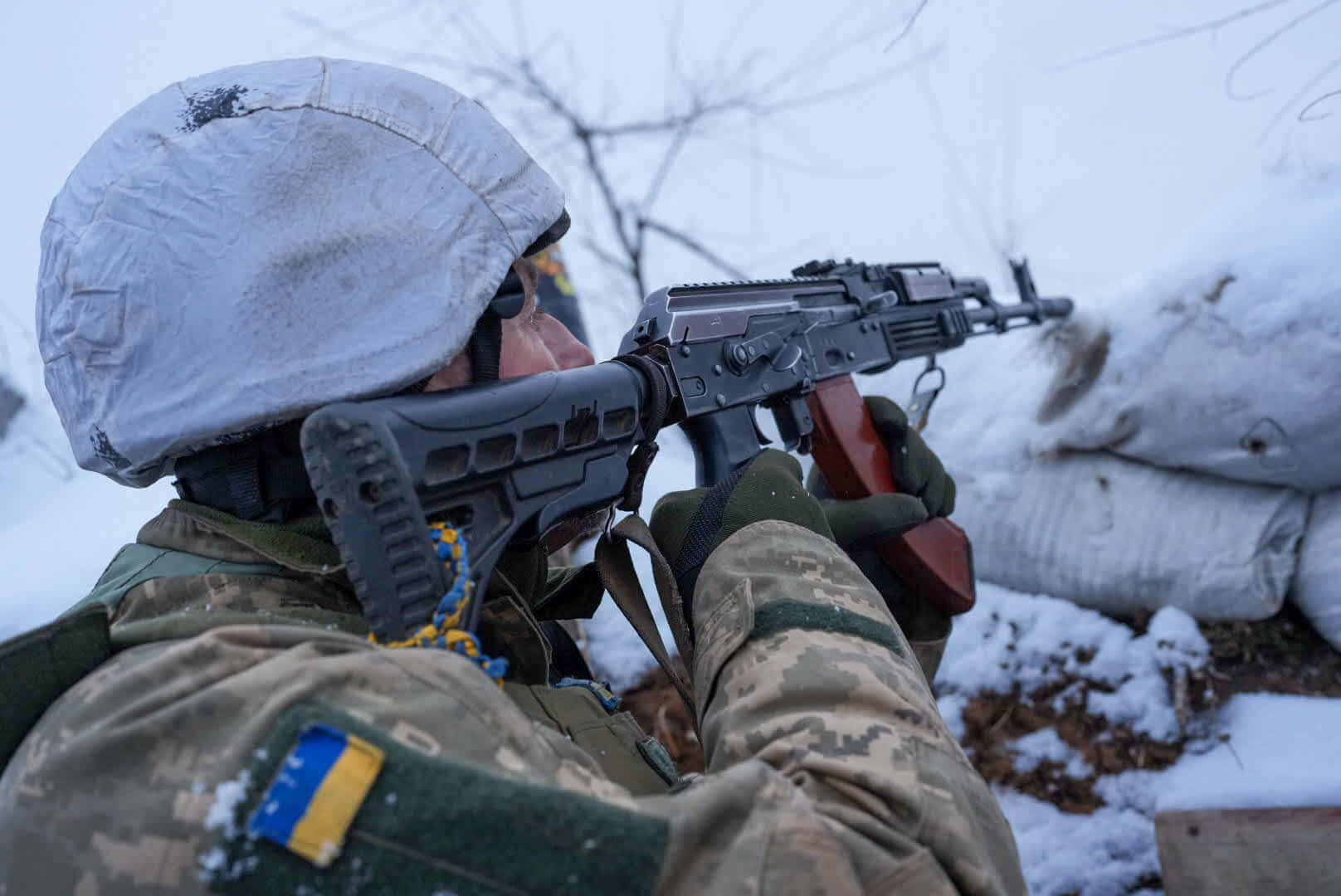Servicemen of Russia’s Eastern Military District units attend a welcoming ceremony as they arrive at unfamiliar training ranges in Belarus combining their own means of transport with travelling by train, to take part in a joint military exercise held by the Union State of Russia and Belarus and aiming to simulate repelling an external attack on its border, cutting possible supply lines for invaders as well as detecting, containing and eliminating their combat and subversive units.
Russian Defence Ministry | TASS | Getty Images
Fears of a Russian invasion of Ukraine are growing, as the military buildup at the border shows no sign of dissipating and crisis talks remain at an impasse.
As the U.S. and U.K. respond with threats of sanctions and more, and withdraw diplomatic staff from their embassies in Kyiv, analysts are questioning whether the West can actually deter Russia, and just how far Western allies are willing to go to defend the country.
“While Russia continues to send additional troops and weaponry to the Ukraine border, there seem to be some divisions among the Western allies about how to respond,” Helima Croft, head of global commodity strategy and Middle East and North Africa research at RBC Capital Markets, said in a note Sunday evening.
“While they have all promised a tough response, the U.K. and the U.S. have gone furthest in pledging crippling economic sanctions and indicating that Russia indeed has invasion plans and is seeking to install a pro-Kremlin leader in Kiev. By contrast, the German naval chief was forced to resign after stating that Putin ‘deserved respect’ — and suggesting that Berlin should join forces with Moscow against Beijing — and Chancellor Scholz called for ‘prudence’ in the application of sanctions.”
(R-L) Annalena Baerbock, German Foreign Minister, and Antony Blinken, Foreign Minister of the United States of America, are pictured during a press conference on January 20, 2022 in Berlin, Germany.
Florian Gaertner | Photothek |…

